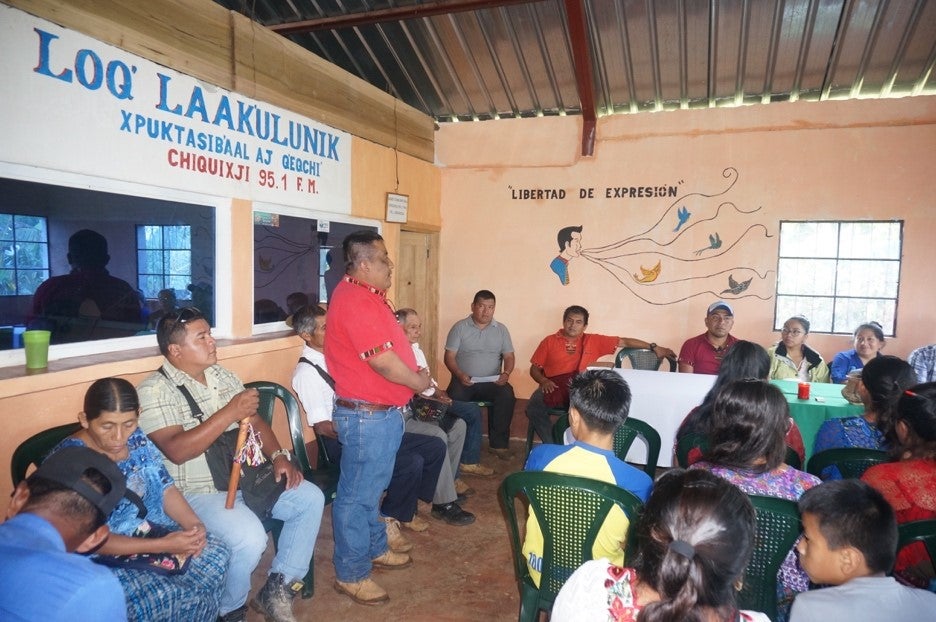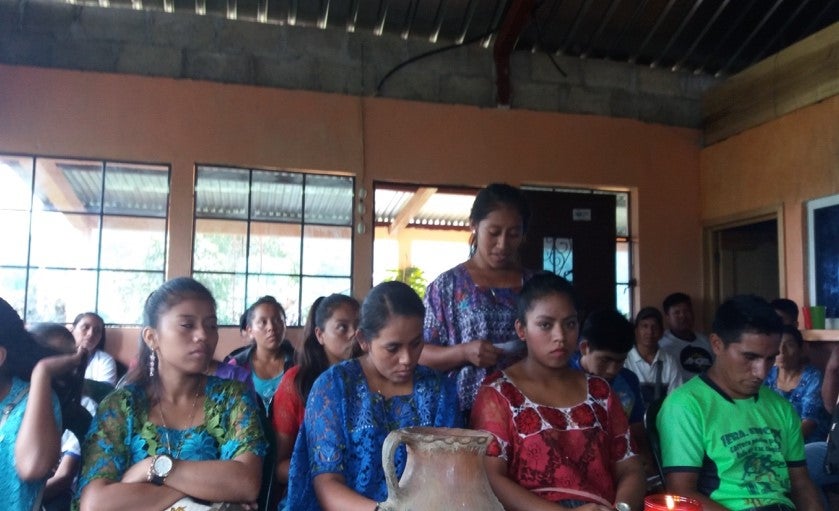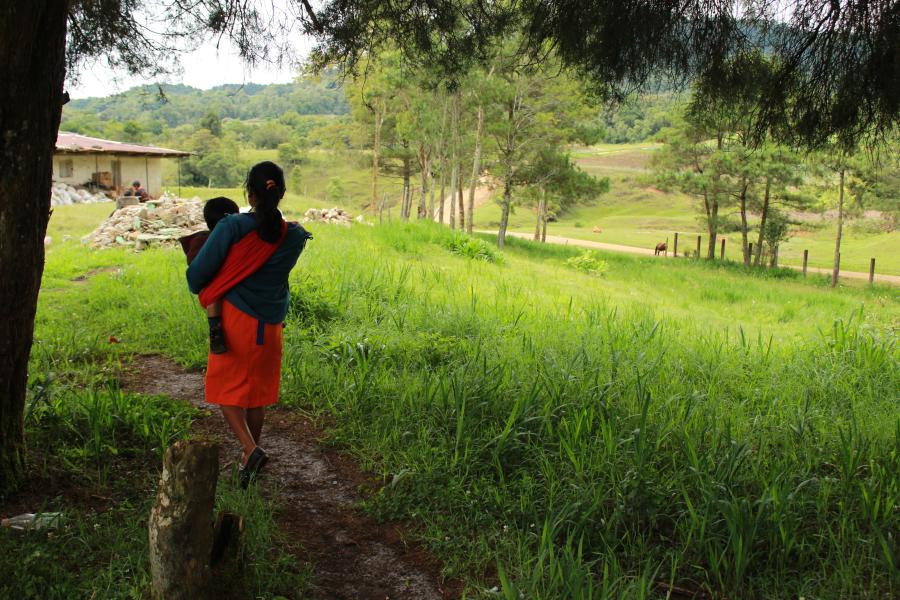
At the close of 2019, Cultural Survival’s team visited several Indigenous community radio stations in Guatemala, as part of the Community Media Grant Project. We are honored to support radio stations as platforms for community organization, education, culture, languages, and for amplifying Indigenous voices. Community visits are an essential part of our grant project process because we personally get to know the needs of the radio stations, its staff, the community participation and support. By visiting, we also initiate a relationship of fellowship, solidarity, and further strengthen the Indigenous movement at local and regional levels.
One of the radio stations we visited was Radio Chiquixji, located in Chiquixji village, in San Pedro Carchá, Alta Verapaz, home to five hundred Q’eqchi’ Maya families in the northeast region of Guatemala. We walked up a steep hill to reach Radio Chiquixji. The top of the hill is a prime location for the antenna signal to reach the entire community. We were welcomed with joy by the radio staff, volunteers, trainees and several Indigenous ancestral authorities, who were holding wooden staffs that represent authority in Mayan communities.
At the beginning of 2017, members of the Community Development Council, a form of local government established by the municipal authorities in Chiquixji, prioritized the reestablishment of the radio station to foster participation and unity in the community after it had closed several years ago as an evangelical radio.

After its reopening, Radio Chiquixji began to promote citizen participation, pushed for human and collective rights’ implementation by the State, and for the diversification of agriculture and local community economy. The community of Chiquixji has been working to revitalize ancestral Indigenous organization and governance called Yuwa ’Ch’och in the last decades.
The community registered their Indigenous ancestral government and now has a legal entity before the municipal government. With municipal recognition, the community and its authorities can now make decisions on accessing and managing their natural resources, and strengthen their own social, political and economic systems, such as the Indigenous justice system. Radio has been a tool to strengthen their own organization and governance rooted in Indigenous knowledge for the protection and management of their territories, the implementation of traditional agriculture, the political training of youth.
Community leader Santiago Pop Ba said, “The radio became the protagonist to inform our people and rebuild our ancestral organizations that have been taken away from us. We are going to boost our agriculture and do away with the idea that the only options for people are to work in papaya, banana or palm farms or go to the city to work as security guards. We began to promote a community transformation. We are not poor, we are rich. If we were poor, the big companies would not exist, the megaprojects would not be here with us. In a small survey, we confirmed that coffee production is rooted in the community and our proposal is to diversify production to guarantee some income and food sovereignty. ”
Seeing communities like Chiquixji organized and going through processes of decolonization is very rewarding to our team because supporting their one-year project is part of their larger process of self-determination.
Radio Chiquixji’s primary needs are increasing the number of radio volunteers, especially more women; better community programming and improvements to the radio infrastructure. Current volunteers travel from remote communities and pay for the travel costs themselves. The station does not generate many funds towards its self-sustainability, which is a shared experience among many Indigenous community radio stations in Guatemala. Whatever funds collected generally go to cover administration and operation expenses. Therefore, it was a priority for a project to train local youth to join the station.

Capacity building workshops were organized for more than twenty young and adult women on Indigenous Peoples' rights, protection of lands and resources, rights of Indigenous women, and national legislation that affects collective rights and capacities in public debates. They also learnt about radio production and audio editing.
Three young participants were among the group who welcomed us. Two young women both expressed why the project supports the development of knowledge and skills on the radio. “For us, the workshop certificate we are receiving is important. Before, I was afraid to speak, now the fear has to be left behind. It would be much better to watch many women on the radio because the participation of women is not very visible in our communities. We have the right to talk about what we want. We have the right to defend the territory of our communities,” stated Gloria Esperanza Caal Sagui, who participated in this training and in other workshops for women organized by Cultural Survival.
For Cultural Survival, this project and training is a small contribution to creating new generations of Indigenous women who claim their right to express themselves, find the courage to speak, showcase their creativity, and demand their rights in a region that was so gravely traumatized by military oppression during the Civil War.

